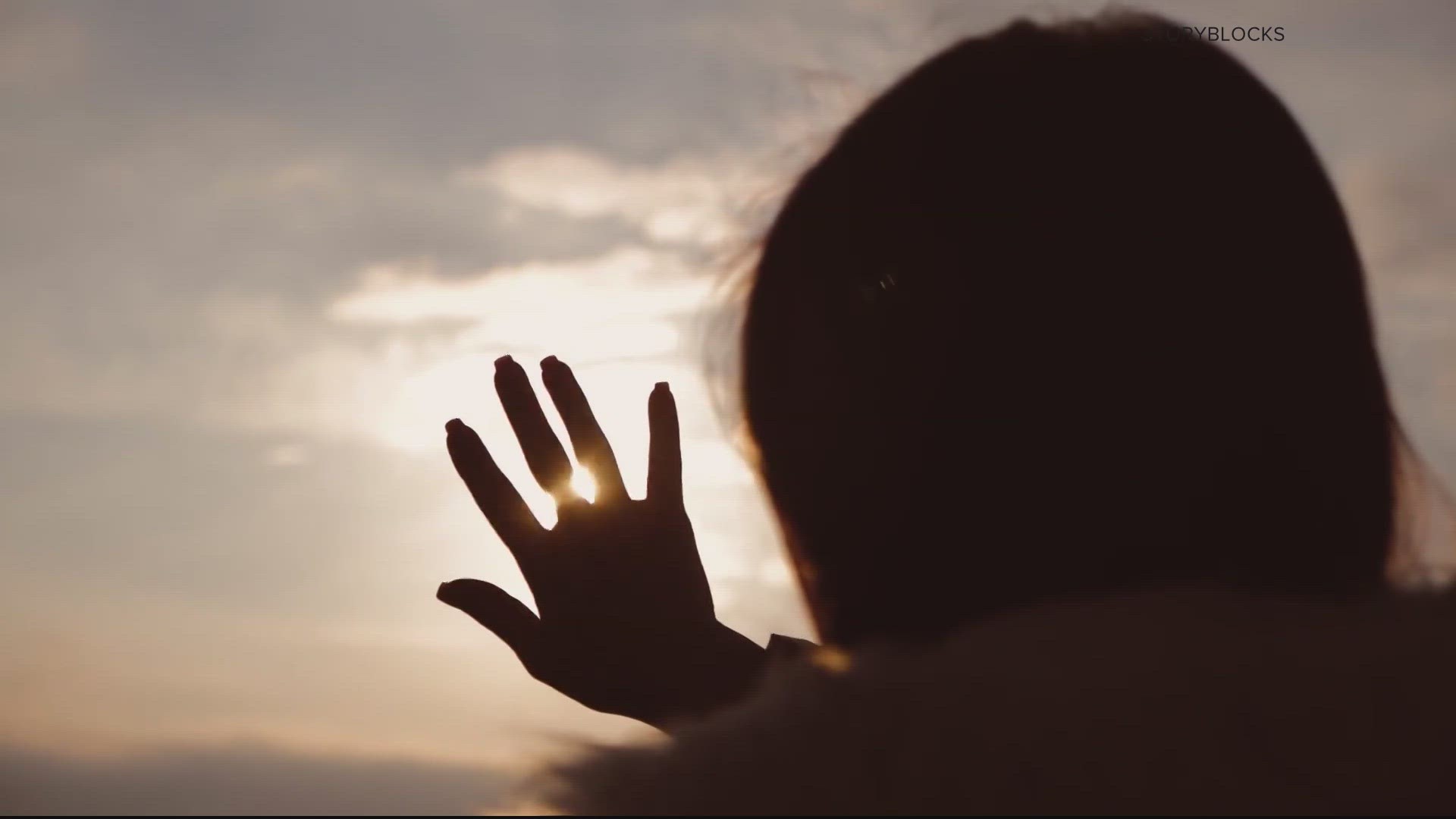WASHINGTON — Sunshine on a cloudy day sure sounds nice, but might not feel so great. You may have heard warnings to lather up the sunscreen even when it’s cloudy or overcast because the sun’s rays are even more powerful. So is that true?
THE QUESTION:
Are UV rays stronger on overcast days?
THE SOURCES:
- Dr. Kathleen Ellison, US Dermatology Partners
- The FDA
- The American Cancer Society
- The University of Washington Center for Ecogenetics and Environmental Health
- “UV Sensitivity to Changes in Ozone, Aerosols, and Clouds in Seoul, South Korea” in the Journal of Applied Meteorology and Climatology
- Johnny Gurgen Dermatology & Mohs Surgery
- National Oceanic & Atmospheric Administration
- The Skin Cancer Foundation
- The American Academy of Dermatology
- The National Council on Skin Cancer Prevention
- The effect of clouds on enhancing UVB irradiance at the Earth's surface: A one year study
- “Extreme ultraviolet index due to broken clouds at a midlatitude site, Granada (southeastern Spain),” The SAO/NASA Astrophysics Data System
THE ANSWER:
While cloud coverage dampens the sun’s rays by a small percent, sometimes clouds scattered high in the sky can create a “broken cloud effect” and actually enhance UV rays on the ground. In any case, it’s important to wear sunscreen as usual.
WHAT WE FOUND:
A dark and cloudy day will, by definition, block out some sunshine, but our research all concludes that many of those skin-damaging rays can still filter through.
“Around 80% of the sun rays can penetrate through the clouds,” said Dr. Kathleen Ellison, US Dermatology Partners, echoing the findings of The American Academy of Dermatology.
“So you're still getting sun exposure and sun damage even if the sun is not out,” said Dr. Ellison.
And some clouds could be worse than none at all. Verify looked at several studies showing a phenomenon sometimes called the “broken cloud effect” can actually cause the sun’s light to reflect and bounce around more intensely.
The University of Washington’s Center for Ecogenetics and Environmental Health cites research showing UV rays enhanced by 25% on a partly cloudy day, compared to a sunny day.
However, the reason for your cloudy day sunburn might be less meteorological and more mental: experts say people often aren't thinking of applying or reapplying sunscreen when they aren’t feeling bright, direct sunrays.
Windy days can also cool the skin and the Skin Cancer Foundation warns, can make you more likely to blow off sunscreen.
No matter the weather, if you’re near the water, it’s extra important to lather up. According to the National Council on Skin Cancer Prevention, light bouncing off water and sand can effectively double UV exposure.
Watch Next: Does sunscreen expire? | Verify

